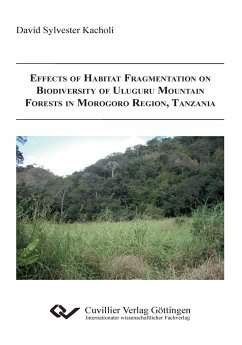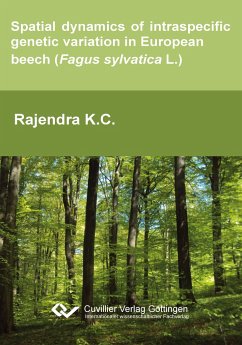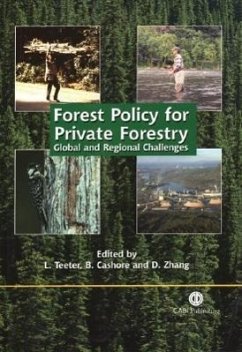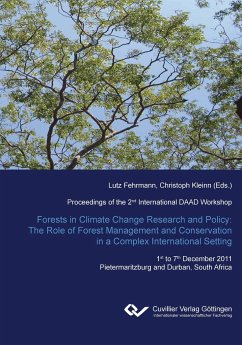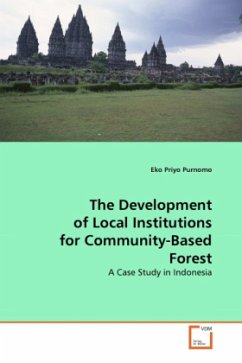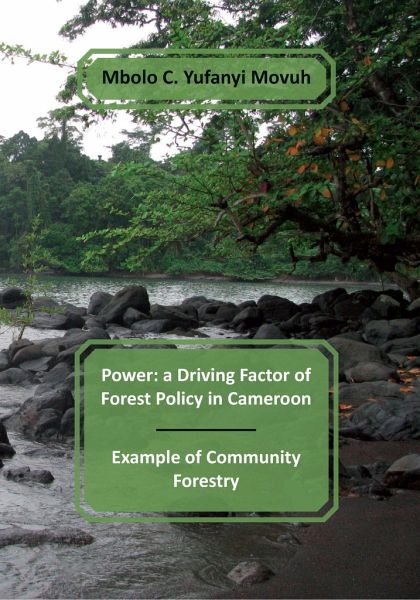
Power: a Driving Factor of Forest Policy in Cameroon. Example of Community Forestry

PAYBACK Punkte
0 °P sammeln!
This book presents theories and methods which enable a better comprehension of how powerful stakeholders influebce forest policy with community forestry as concrete example. Community forestry is being propagated all over the world by researchers, western bilateral organisations, NGOs and international institutions as a bottom-up model for community participation in forest and wildlife management especially in the tropical parts of the world. Academic and empirical publications analysing community participation in forest management have laid more emphasis on mainstream social and political the...
This book presents theories and methods which enable a better comprehension of how powerful stakeholders influebce forest policy with community forestry as concrete example. Community forestry is being propagated all over the world by researchers, western bilateral organisations, NGOs and international institutions as a bottom-up model for community participation in forest and wildlife management especially in the tropical parts of the world. Academic and empirical publications analysing community participation in forest management have laid more emphasis on mainstream social and political theories and less on critical theories. Many publications highlight the importance of community forestry worldwide while at the same time question ist successes. The book will contribute to the scientific discourse while analyzing forest policy in Cameroon through the example of community forestry. Power being the core of the analysis as a driving factor fo forest policy in Cameroon, the book questions such as: (1) How an power be described in the context of forest policy, case study of community forestry? (2) What are the power processes? And (3) what outcomes of this power processes could be observed? The book analyzes the importance of power through political and critical theories, connecting them with other power theories and concepts formulated by the Community Forestry Working Group in Goettingen, Germany.





